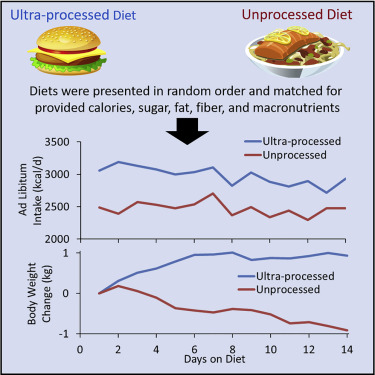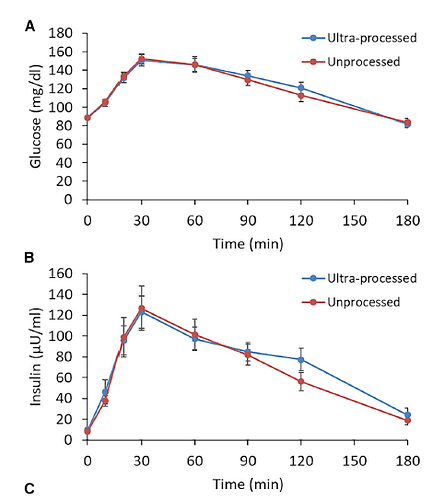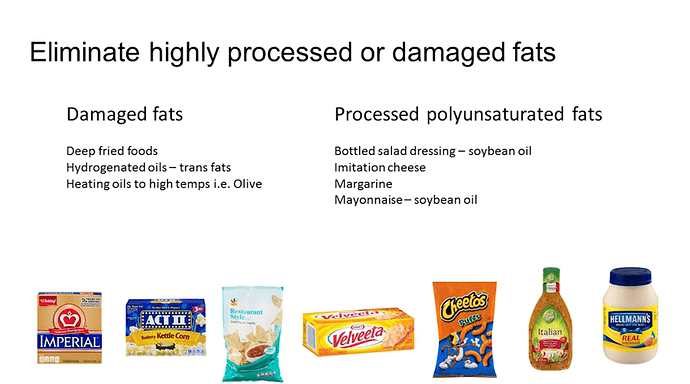“Ultra-Processed Diets Cause Excess Calorie Intake and Weight Gain: An Inpatient Randomized Controlled Trial of Ad Libitum Food Intake.”
Study of 10 males and 10 females (the only kind of controlled study I pay attention these days involves femaes) is the first randomized, controlled trial to prove the sense and reasonable math that eating a diet made up of ultra-processed foods actually drives people to overeat and gain weight compared with a diet of a few generations back - made up of whole or minimally processed foods.
Some of the hormones that are involved in food intake regulation were quite different between the two diets as compared to baseline. “When the participants were eating the unprocessed diet, they had higher levels of an appetite-suppressing hormone called PYY, which is secreted by the gut, and lower levels of ghrelin, a hunger hormone, which might explain why they ate fewer calories. On the ultra-processed diet, these hormonal changes flipped, so participants had lower levels of the appetite-suppressing hormone and higher levels of the hunger hormone.”
Another interesting finding: Both groups ate about the same amount of protein, but those on the ultra-processed diet ate a lot more carbs.
“These are landmark findings that the processing of the foods makes a huge difference in how much a person eats. That’s important, because the majority of foods now sold in the U.S. — and increasingly, around the globe — are ultra-processed.”
Simply put: Ultra-processed foods usually contain many ingredients made in labs and create more chaos, craving, and addiction. Real foods come from the living land and its creatures and are Mother Nature’s provisions for hormonal healing. 







https://www.cell.com/cell-metabolism/fulltext/S1550-4131(19)30248-7




